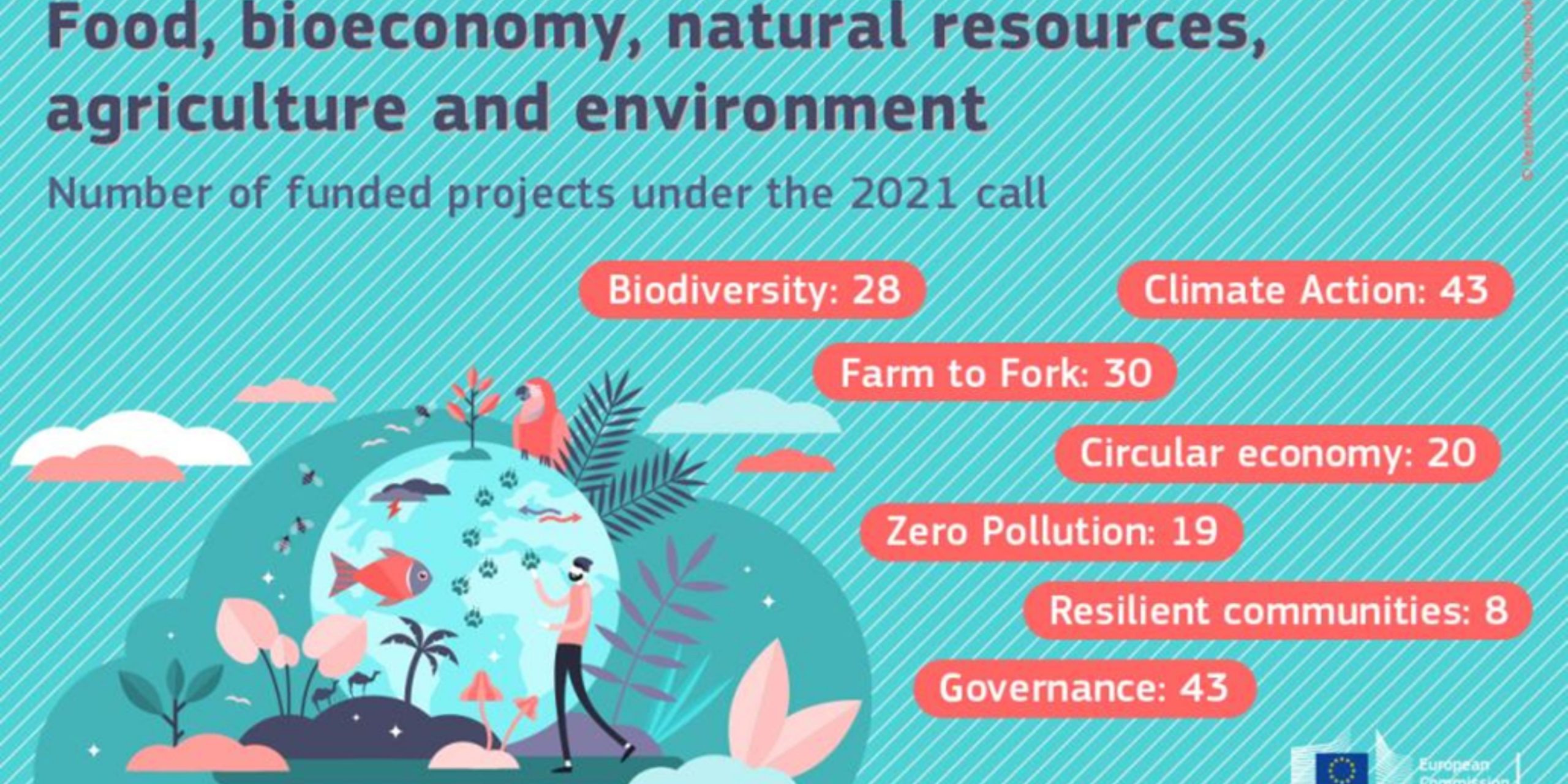The projects have just signed their grant agreements with the European Commission and will share €959 million of funding to advance on organic farming, sustainable food chains and circular economy methods, while protecting the environment.
The funded projects are expected to help the EU deliver on its climate action goals set on the EU Green Deal. They will contribute to different EU strategies and initiatives such as the Zero Pollution Action Plan, EU Soil, EU Biodiversity and EU Farm-2-Fork strategies to name just a few.
Few examples of what the projects are expected to do
The project MIBIREM proposes bioremediation solutions (using microbiomes) to clean up contaminated land – one of the key objectives of the EU Soil Strategy. Meanwhile, the project SOS-ZEROPOL2030 aims to develop a holistic framework to provide practical guidance to different actors and policy makers to achieve zero pollution in European seas by 2030.
Because education is key to accelerating the transition towards more sustainable and circular behaviours, the projects GenB and BioBeo will develop new educational approaches in the field of bioeconomy. They will involve teachers, professionals, parents and schools in different Member States. The projects will also develop activities to inspire young people to pursue education in life science, technology and bioeconomy related areas.
The project CEE2Act will empower countries in Central Eastern Europe and beyond to develop circular bioeconomy strategies and action plans by building closer interconnections between actors. This includes public institutions, private sector industries, energy, SMEs, feedstock providers (e.g., waste, farmers, foresters, fishermen), academia and research and NGOs in the target countries.
The projects ToNoWaste and CHORIZO are expected to support more timely and responsive decision-making on food waste prevention and reduction, engaging food companies in the process.
FishEUTrust aims at integrating the defragmented current seafood system community into a digital platform that links technology providers, supply chain stakeholders, policymakers and consumers. The project will establish five co-creation Living Labs in the Mediterranean, the North Sea and the Atlantic Sea. They will test and validate sustainable solutions, which will go from protecting cultural and culinary heritage, short food supply chains, exploiting underused fish species, and innovative engaging activities to stimulate behavioural change.
Some of the projects are also expected to focus on the collection and analysis of data to increase the performance of different socio-economic sectors favoring climate adaptation and mitigation.
Several new funded projects will also aim at increasing the flow of practical information between farmers and foresters in the EU and will promote the transposition of innovative solutions into practice in various specific thematic areas. For instance, the project B-THENET will support the EU beekeeping sector, and BROILERNET, the broiler sector. The CLIMED-FRUIT project will support the adaptation to climate change and mitigation for perennial crops in the Mediterranean Area. OPER8 will promote solutions for non-chemical weed control.
See the number of funded projects per call/area of research:
| Biodiversity and ecosystem services | 28 |
| Fair, healthy and environmentally friendly food systems, from primary production to consumption | 30 |
| Circular economy and bio-economy sectors | 20 |
| Clean environment and zero pollution | 19 |
| Land, ocean and water for climate action | 14 |
| Resilient, inclusive, healthy and green rural, coastal and urban communities | 8 |
| Innovative governance, environmental observations and digital solutions in support of the Green Deal | 43 |
| Total number of projects | 162 |
How were the projects selected?
All projects were selected in seven competitive calls for proposals, which opened on 22 June 2021. In total, 591 proposals were submitted by the calls deadline on 06 October 2021.
The selected projects received the highest marks in a peer evaluation run by the European Research Executive Agency (REA) with the help of independent experts.
Further information
Keep up-to-date with these projects—as well as other innovative research—by following REA on Twitter and LinkedIn. You will get the latest news on events they may organise as well their research outcomes. Subscribe to the Food, bioeconomy, natural resources, agriculture and environment newsletter for these updates straight into your inbox.
Source: European Commission I European Research Executive Agency (https://bit.ly/3drP0eC)
